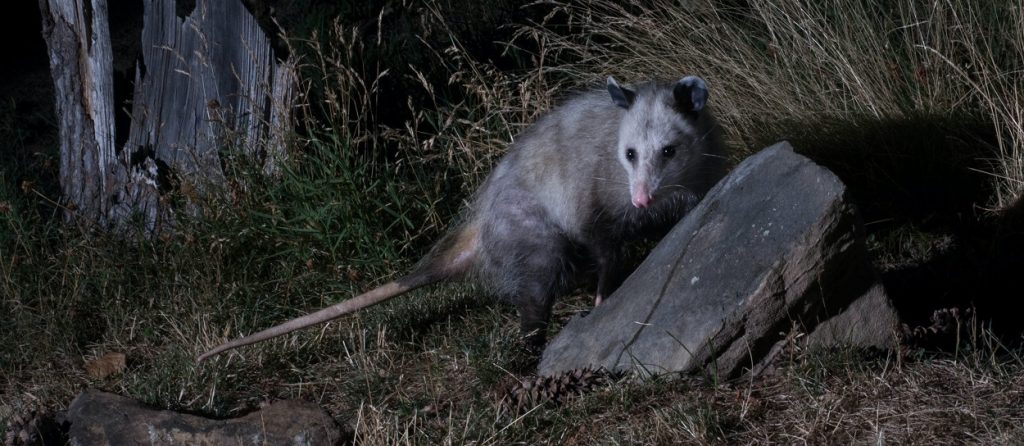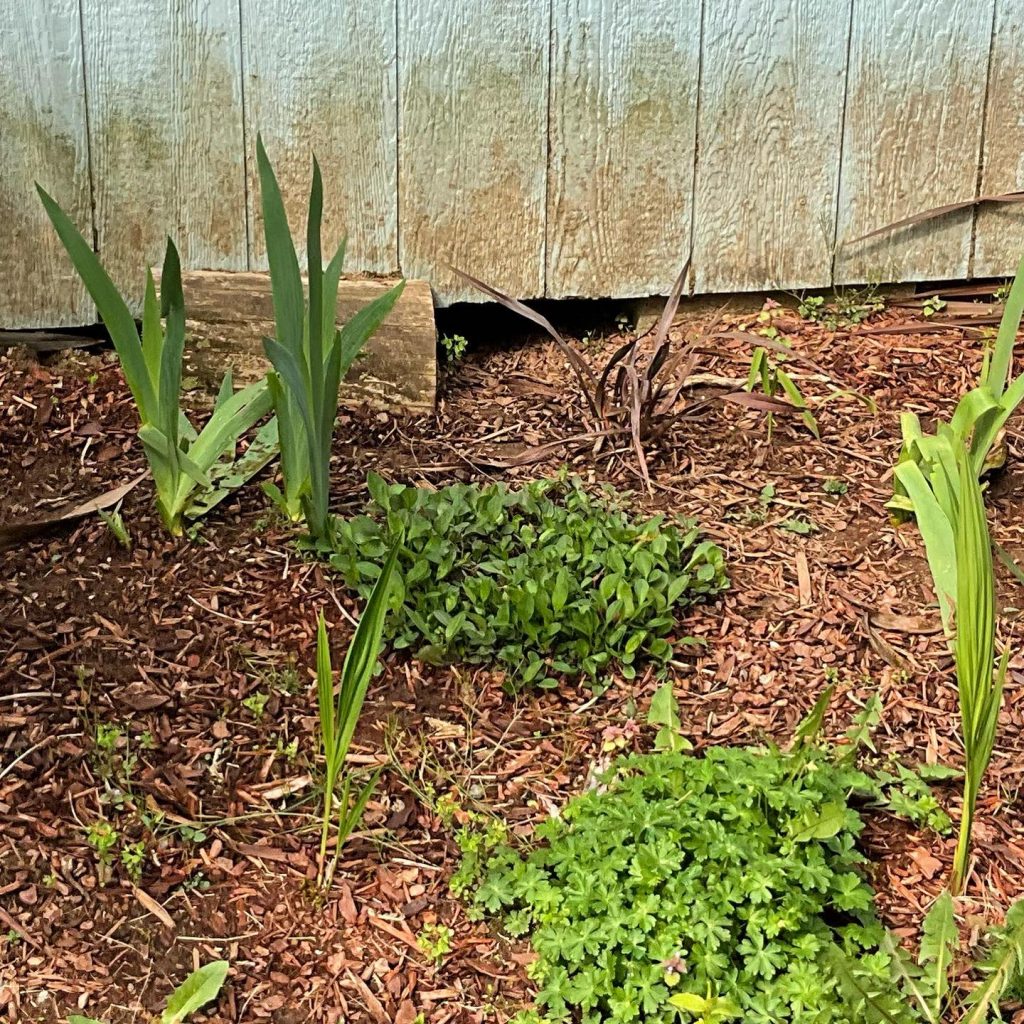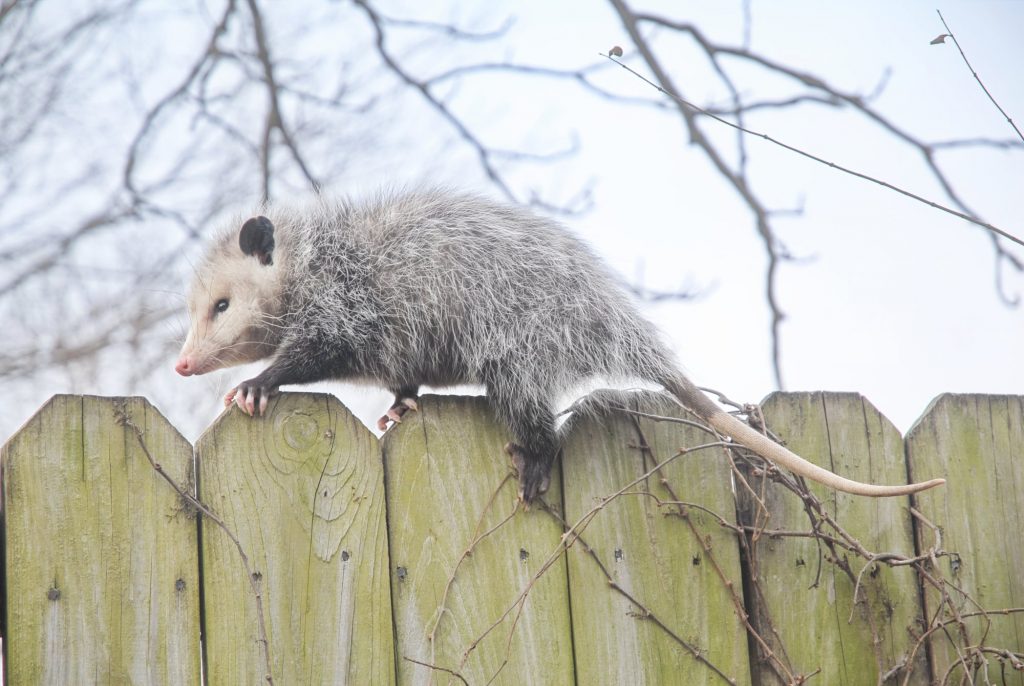As opportunistic scavengers, the diet of the opossum is incredibly varied. Their omnivorous diet includes insects, ticks, small rodents, frogs, birds, and berries. In residential neighborhoods, opossums forage for vegetables, fruits, garbage, bird seed, and pet food. Fresh meat and roadkill are also dietary staples.
The opossum diet changes slightly depending on the season. For example, the critters eat a lot of insects in the summer while they mostly consume small mammals in the winter.
Opossum: Nature’s Pest Control
Ecosystems have natural mechanisms to balance the populations of organisms residing within. With tick populations, Virginia Opossums (Didelphis virginiana), the only marsupial of North America, are perhaps the greatest predator. According to Rick Ostfeld of the Cary Institute of Ecosystem Studies, Virginia Opossums are extraordinarily good at grooming, consuming 95 percent of the ticks that feed on them. As they traverse through vegetation, they vacuum up ticks left and right, keeping populations at bay and quelling the spread of Lyme disease. As per numbers, a single Opossum may kill 5,000 ticks every season!
Aside from ticks, opossums feast on a variety of pests including cockroaches, rats and mice, snails, and slugs. These North American predators are impervious to snake venom, controlling both ticks and snakes. Lastly, they play an essential role as the clean-up crew for dead animals (known as carrion).
Where and How Opossums Find Food
Opossums depend on smell and touch to find meals. They utilize their prehensile tails and opposable thumbs to climb trees in search of food but are also known to raid gardens, chicken coops, garbage cans, and human homes for nourishment.
How to Prevent Opossum Problems
Opossums provide a lot of value in your yard and are rarely if ever dangerous. They can become a problem if they start to damage your property.
If opossums become a problem, exclusion, and habitat modification are the best ways to prevent an opossum infestation:
- Block openings and holes that could be used as entrances to decks, porches, and outdoor structures.
- Clean up all fallen fruit and outdoor food sources. Make making sure pets eat inside.
- Keep trash cans tightly sealed to remove attractive smells and restrict access.
- Trim overgrown vegetation and eliminate wood piles for denning.
All of these tips can deter some opossums and ticks from the home. Unfortunately, stubborn pests may still find their way onto yards. In this case, it is best to leave safe and effective opossum removal to the professionals at Critter Control Canada.


